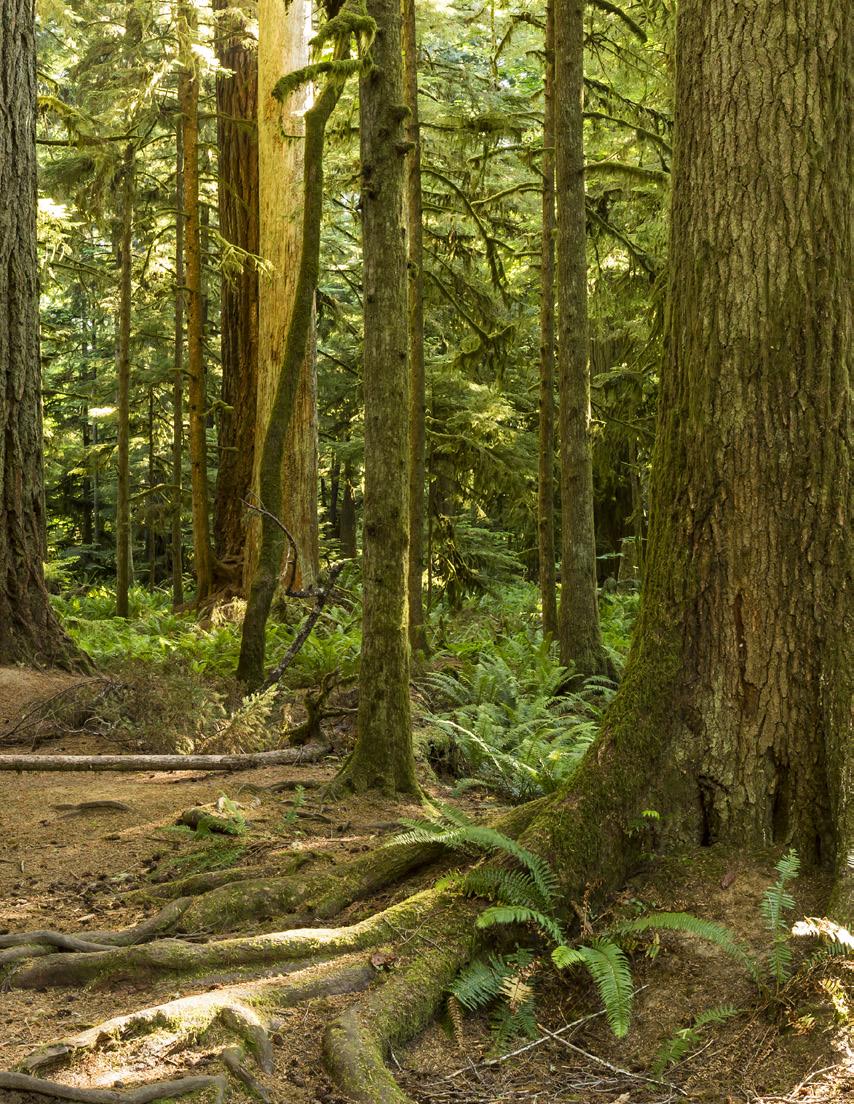
2 minute read
Breathing life into diseased Arbutus trees
A UBC Forestry master’s student is investigating a probiotic to help this iconic tree weather increased stress from disease and climate change
The Arbutus tree is hard to miss. Its orange bark and gnarled, twisting branches stretch out from hillsides towards large bodies of water. Yet, over the past few years, the only broad-leaf evergreen in Canada has been showing signs of distress. Affected by fungal pathogens and other diseases that can cause its leaves to darken and drop, UBC Forestry graduate student Priya Puri (BSc(Forest Sciences)’20) and other researchers in BC and the US, are collecting vital data that could help save this iconic tree.
Advertisement
“We hope that this research will fill in some gaps to explain why Arbutus trees are declining,” explains Priya, who is currently in the second year of a Master of Science in Forestry under the supervision of Prof. Richard Hamelin and Prof. Peter Arcese
Priya – along with Arbutus ARME research group collaborators in BC, Washington and Oregon – are examining whether some varieties of Arbutus fair better outside of their provenances, or where they originated from geographically. Priya’s arm of the project takes place in Lake Cowichan on Vancouver Island and on Texada Island in the Straight of Georgia. She and other BC researchers are examining 44 different Arbutus seed type groups and around 105 subgroups.
Samples from Arbutus tree bark, leaves and surrounding soil are sent to a lab for analysis, Priya explains. There, technicians look for causal agents that might make one group or subgroup of tree more vulnerable to the effects of climate change or other environmental factors. In particular, Priya is interested in the trees’ microbiome: the collection of helpful and harmful bacteria, fungi and other microorganisms present in and around them.
“I’m looking to see which communities of microorganisms – such as different fungi, bacteria and other small, single-celled organisms – might affect tree health, either negatively or positively, or sometimes both at the same time,” Priya explains.
Pathogens that fall into the negative category are part of the pathobiome; whereas, those pathogens that have a positive effect on a tree’s health and longevity form part of their symbiome.
While it is yet unclear exactly why Arbutus trees have been on a slow decline throughout their native ranges since the 1970s, climate change is likely at least partly to blame, Priya says.
“Although Arbutus are drought-tolerant, the cumulative effects of dry weather, changing temperatures and external stressors can make them more vulnerable to the effects of disease.”
Priya relates this to the concept of the disease triangle, which highlights the interaction between disease, environmental conditions and the host and pathogen, according to a 2006 Nature Reviews Microbiology article, “The disease triangle: pathogens, the environment and society.” This conceptual model has been expanded to consider how microbes associated with pathogens and their hosts within a certain environment can initiate disease –something that Priya is rethinking in light of emerging pathobiome theories.
“Similar to COVID-19, if you’re already stressed and not feeling well, the disease is probably going to hit you a lot harder.”
Priya is also investigating whether a probiotic that gets applied to Arbutus bark, leaves, surrounding soil or seeds, along with specific microbiomes associated with certain seed sources, could improve Arbutus health and survival rates.
Much stands to be lost should the Arbutus disappear from the south-west, says Priya. They support nesting birds with their branches and berries; pollinators with their flowers; and other trees, such as the Garry oak and Douglas-fir, through their root system, which also helps keep soil in place. Arbutus bark is used by Coast Salish Nations for medicines, the wood for carvings and the berries for teas.
“We want everyone to be able to cherish this tree 20 and 100 years from now,” says Priya. “They provide a lot of ecological and cultural benefits to our coastal forest systems and communities.”
Priya can be reached at ppuri@mail.ubc.ca. Learn more about her work on Twitter: @PriyaNeenaPuri and more about Arbutus conservation at Arbutusarme.org










